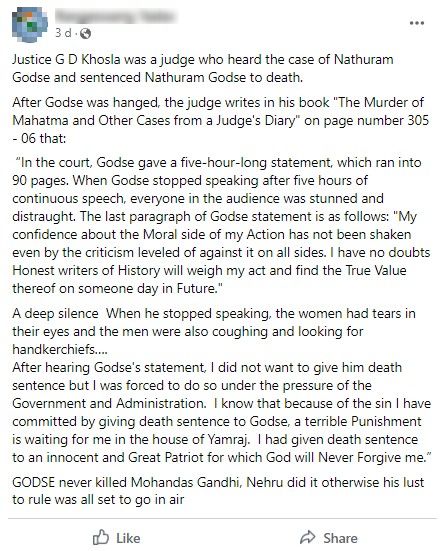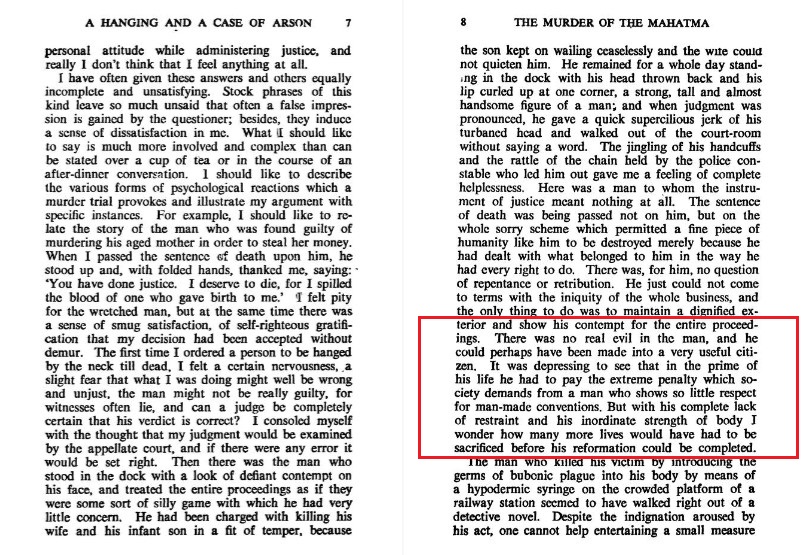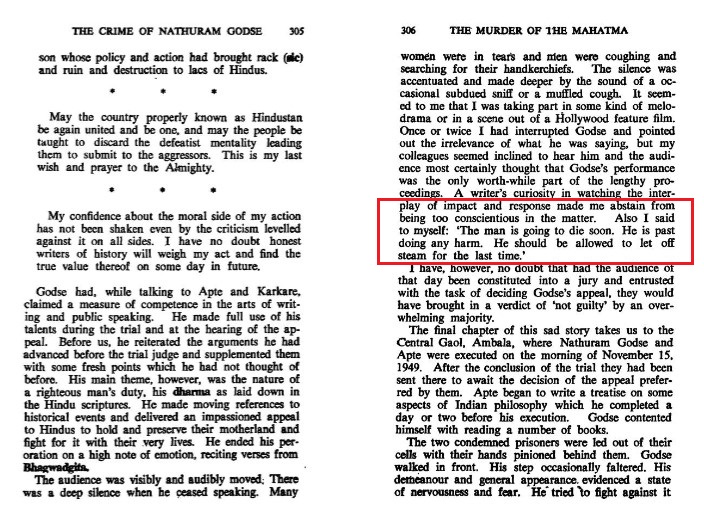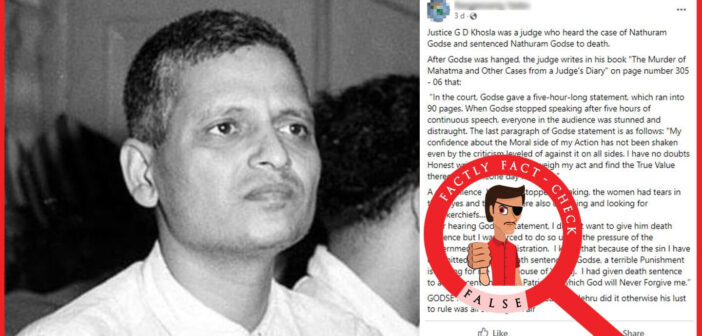A social media post claims that Justice G D Khosla, who presided over Nathuram Godse’s trial and sentenced him to death, expressed regret about his decision in his book “The Murder of Mahatma and Other Cases from a Judge’s Diary.” The post also includes passages from the book that describe Godse’s courtroom statement. Through this article let’s fact-check the claim made in the post.

Claim: Justice G D Khosla, who presided over Nathuram Godse’s trial expressed regret about his decision in his book “The Murder of Mahatma.”
Fact: In his book, Justice Khosla conveyed his unease regarding the death penalty as a concept. However, at no point did he mention that Godse is innocent, nor did he refer to Yamraj nor claim that he had sentenced an innocent patriot, nor did he mention that he imposed the death sentence under any influence from the government or administration. Hence, the claim made in the post is FALSE.
Justice GD Khosla, who presided over the appeal filed by Godse and his co-convicts challenging the trial court’s decision in the Mahatma Gandhi assassination case, authored a book titled ‘The Murder of the Mahatma’ in 1965, documenting the events.
During the trial, Godse took more than five hours to read out a 150-paragraph statement in court. And it is true that Justice Khosla in his book had mentioned that Godse’s statement had an emotional impact on the crowd and that there was a profound silence in the court following his statement, as claimed in the viral post.
In the book, Khosla conveyed his unease regarding the death penalty as a concept. He even mentioned that sentencing an innocent man to death was his biggest fear during his days of inexperience. However, at no point did he mention that Godse is innocent, nor did he refer to Yamraj or claim that he had sentenced an innocent patriot.
He recognized the seriousness of Godse’s crime but raised doubts about whether the death penalty was a suitable punishment. However, it’s worth noting that Justice Khosla did not mention in the book that he imposed the death sentence under any influence from the government or administration.

In fact, he explicitly mentioned, ‘The man is going to die soon’, as Godse delivered his lengthy statement. Furthermore, when reflecting on Godse’s final days in prison, Justice Khosla added, “Godse had, during his last days in jail, repented of his deed and declared that were he to be given another chance he would spend the rest of his life in the promotion of peace and the service of his country”.

At this juncture, it’s important to note that Godse did not contest his conviction for murder or question the appropriateness of the death penalty. His appeal focused solely on challenging the verdict regarding the conspiracy aspect.
To sum it up, Justice Khosla did not make any mention in his book that he sentenced Godse under the influence of the government.



